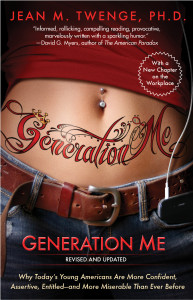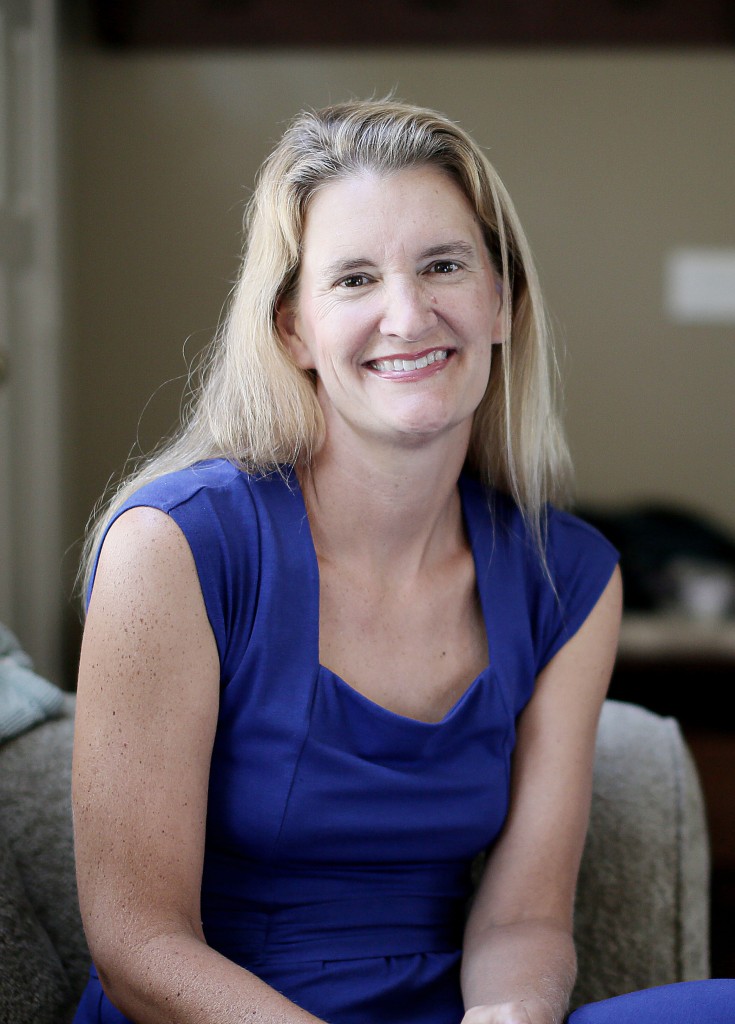Jean M. Twenge, SDSU – Millennial Sexuality
How do the sex lives of millennials compare with that of their Baby Boomer forebears?
Jean M. Twenge, San Diego State psychologist, is delving into the sexuality of the age group she calls Generation Me.
Jean M. Twenge, Professor of psychology at San Diego State University, is the author of more than 100 scientific publications and the books Generation Me: Why Today’s Young Americans Are More Confident, Assertive, Entitled — and More Miserable Than Ever Before and The Narcissism Epidemic: Living in the Age of Entitlement (co-authored with W. Keith Campbell). Dr. Twenge frequently gives talks and seminars on teaching and working with today’s young generation based on a dataset of 11 million young people. Her audiences have included college faculty and staff, high school teachers, military personnel, camp directors, and corporate executives. Her research has been covered in Time, Newsweek, The New York Times, USA Today, U.S. News and World Report, and The Washington Post, and she has been featured on Today, Good Morning America, CBS This Morning, Fox and Friends, NBC Nightly News, Dateline NBC, and National Public Radio. She holds a BA and MA from the University of Chicago and a Ph.D. from the University of Michigan.
Millennial Sexuality
Trends in sexual attitudes and behavior

Every generation likes to think they’re cooler than their parents – especially when it comes to sex. These days, though, they might only be half right.
 In surveys between 1972 and 2012, Millennials – those born in the 1980s and 1990s – were the most accepting of premarital sex. For 20 years during the 1980s and 1990s, the number of Americans who believed premarital sex was “not wrong at all” barely changed. But around 2000, when Millennials started to enter the survey, acceptance began to creep up, and by 2012, 58% of American adults approved of premarital sex.
In surveys between 1972 and 2012, Millennials – those born in the 1980s and 1990s – were the most accepting of premarital sex. For 20 years during the 1980s and 1990s, the number of Americans who believed premarital sex was “not wrong at all” barely changed. But around 2000, when Millennials started to enter the survey, acceptance began to creep up, and by 2012, 58% of American adults approved of premarital sex.
Surprisingly, though, Millennials are choosing to have sex with fewer partners than their Baby Boomer parents did. We project that Millennials will have sex with about 8 partners by age 45, compared to Boomers’ 11. Millennials might be more cautious about sex due to HIV and AIDS, might choose partners from within smaller “friends with benefits” groups, or may have fewer opportunities to have sex because more are living with their parents well into their 20s. Nevertheless, this is still a far cry from the 2 partners reported by the “Greatest” generation who fought World War II. The sexual landscape is still radically different than it was in the middle of the 20th century.
Why the change? Cultural individualism is on the rise, with more focus on the self and less on social rules. That’s a clear formula for a more relaxed attitude toward sex outside of marriage. It’s also a formula for acceptance of difference – probably why four times as many Americans now say homosexual sex is “not wrong at all.” Millennials – whom I call Generation Me – reflect this individualistic attitude in everything from their self-focus to their tolerance. These cultural changes are not all good, and they are not all bad, but they are more individualistic.




Regarding Jean Twenge’s minute on sexual practices and attitudes of three generations, I found it incredible that she mentioned neither effective birth control or feminism in as a cause for changes in attitudes toward premarital sex. Men in the Greatest Generation probably had sex with more women than did women, both because men were in the military and because they didn’t worry about birth control. The Pill (we write it in upper case as a symbol of its importance) changed everything for women, as did feminism. Finally, I am struck by the sexual “prudery” of my college female students, in comparison with my own boomer cohort. I don’t think it’s just individualism, it’s conformity.